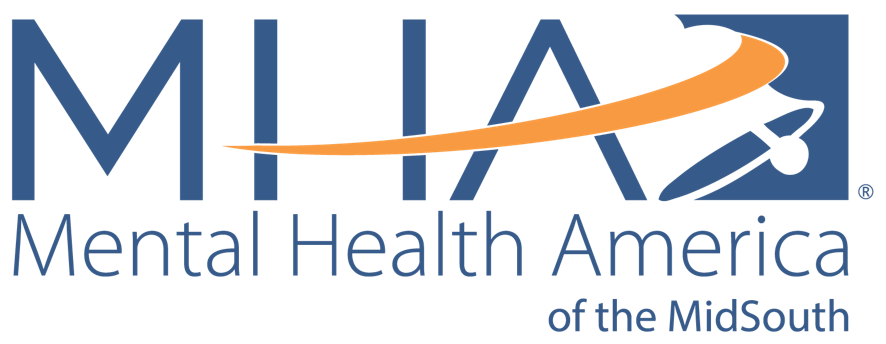MENTAL HEALTH AMERICA OF THE MIDSOUTH's
Annual Ethics Conference
Annual Ethics Conference
Ethics in Action
Navigating Complexities Across Clinical Practice and Family Dynamics
Live Webinar
Friday | May 10th
9:00 AM - 12:30 PM CT
3 Credit Hours*
Overview & Objectives
Join us for a dynamic conference where we delve into the heart of ethical practice across diverse realms of social work. Our expert speakers will explore the critical role of integrity in clinical settings, offering insights and strategies for ethical caseload management tailored specifically for clinicians. We'll examine the guiding principles essential for effectively supporting children and teens, ensuring their well-being through ethical imperatives. We'll navigate the intricate landscape of family dynamics, including sensitive issues like domestic violence, as we collectively address ethical considerations in fostering healthy relationships. This conference promises to be an invaluable opportunity for professionals to enhance their ethical awareness and practice, empowering them to navigate complexities with confidence and integrity.
Identify practical skills to apply ethical decision-making frameworks to case management and practice policy questions, fostering ethical integrity and efficacy in professional practice
Demonstrate understanding of the knowledge and skills necessary to address domestic violence, also known as intimate partner violence, within professional practice settings
Demonstrate a comprehensive understanding of ethical considerations and decision-making processes when working with children and adolescents in therapeutic settings

ETHICAL DECISION MAKING APPLIED TO CASELOAD MANAGEMENT AND PRACTICE POLICIES
Presentation Objectives:
1. Identify five foundational principles of ethical decision making.
2. Summarize the American Counseling Association’s approach to ethical decision making.
3. Discuss case management and practice policy questions using an ethical decision-making process.
1. Identify five foundational principles of ethical decision making.
2. Summarize the American Counseling Association’s approach to ethical decision making.
3. Discuss case management and practice policy questions using an ethical decision-making process.
Nora Balint, LPC-MHSP
THE REFUGE CENTER FOR COUNSELING
Nora is a Staff Therapist at The Refuge Center for Counseling who serves as the Task Force Leader for the Zero Suicide Initiative at The Refuge Center, and is a Certified Instructor for the QPR Gatekeeper Suicide Prevention Training program. She obtained her master’s degree in counseling from Georgia State University, and is a member of the Tennessee Licensed Professional Counselors Association. Nora uses a Family Systems perspective and developmental psychology to help couples, families, and individuals understand and navigate the complexities of their relationships. Some of her areas of focus include suicidal ideation, chronic illness, parenting, family and peer relationship issues, grief and loss, stress, anxiety, gender identity, sexual identity, life transitions, hoarding.

ETHICAL CONSIDERATIONS IN WORKING WITH COUPLES IN ABUSIVE RELATIONSHIPS
Presentation Objectives:
1. Gain more knowledge of the term domestic violence, otherwise known as intimate partner violence.
2. Understand the ethical considerations in working with couples, individuals, or partners when domestic violence is present in the relationship.
3. To learn to document abuse in your reporting when domestic violence is present in your clients’ lives.
1. Gain more knowledge of the term domestic violence, otherwise known as intimate partner violence.
2. Understand the ethical considerations in working with couples, individuals, or partners when domestic violence is present in the relationship.
3. To learn to document abuse in your reporting when domestic violence is present in your clients’ lives.
KIMBERLY KOOY, LMFT
THE REFUGE CENTER FOR COUNSELING
Kimberly is a Staff Therapist at The Refuge Center and the Director of the Neurofeedback Program. She holds a Master’s in Marriage and Family Therapy (MFT) from Lipscomb University with a specialization in play and expressive arts therapy. Kimberly is a member of the American Association of Marriage and Family Therapists (AAMFT) and is a Licensed Marriage and Family Therapist (LMFT). Kimberly has received training in the Othmer method of Neurofeedback and Levels 1 & 2 training in Eye Movement Desensitization & Reprocessing (EMDR). Kimberly has a BS in Communications from Oral Roberts University and a MA in Teaching English to Speakers of Other Languages (TESOL) from Columbia University’s Teacher’s College

ETHICAL CONCERNS WHEN WORKING WITH CHILDREN AND ADOLESCENTS AND COMMUNICATION WITH THEIR CAREGIVERS
Presentation Objectives:
1. Describe confidentiality and privacy concerns in the treatment of children and adolescents
2. Identify strategies to avoid harm while working with children and adolescents while also maintaining neutrality, avoiding bias, keeping healthy boundaries
3. Identify steps in ethical decision making to help decide when or if to disclose to minor's caregivers about possibly harmful activities the client has disclosed participating in.
1. Describe confidentiality and privacy concerns in the treatment of children and adolescents
2. Identify strategies to avoid harm while working with children and adolescents while also maintaining neutrality, avoiding bias, keeping healthy boundaries
3. Identify steps in ethical decision making to help decide when or if to disclose to minor's caregivers about possibly harmful activities the client has disclosed participating in.
JENNA MONFORTE, LCSW
THE REFUGE CENTER FOR COUNSELING
Jenna is currently serving as the Director of the Child and Teen Program at The Refuge Center. A Licensed Clinical Social Worker with a Master of Social Work from The University of Georgia, Jenna is dedicated to helping people heal and live as their authentic selves. She seeks to do this through a therapeutic relationship with clients, and equipping churches and youth-oriented community organizations with knowledge and tools to better support mental health in youth. Jenna has a passion for working with adolescents and young adults both individually and in group settings. With over a decade of experience, her counseling style is warm and inviting, interactive, and collaborative. She incorporates multiple modalities of treatment into her practice to give each client a unique experience to meet their specific needs. Jenna seeks opportunities to support, advocate, nurture, and empower clients dealing with life transitions, identity, relationship issues, grief and loss, anxiety, and depression. Her hope is to provide a safe space for clients to be known and find meaningful healing, hope, and resources for continued growth.
